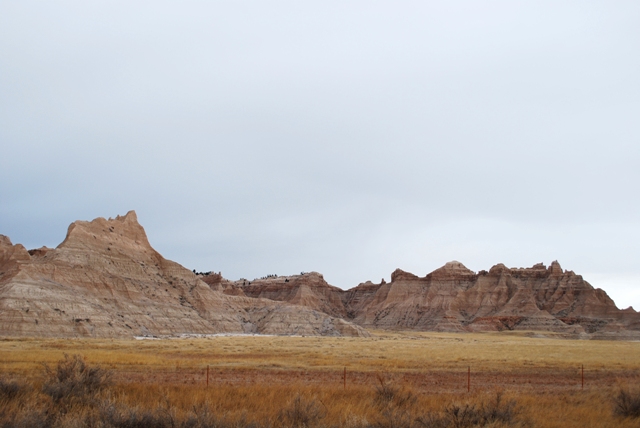We are currently unable to process any Concealed Carry Permits. We apologize for any inconvenience.

The county is entirely within the Pine Ridge Indian Reservation and contains part of Badlands National Park. It is an alcohol prohibition or dry county; taxes on alcohol consumed within the county go to other counties.
Oglala Lakota County is one of two counties in South Dakota that does not have its own county seat (Todd County is the other). Hot Springs in neighboring Fall River County serves as its administrative center. It is also one of five South Dakota counties that are entirely on an Indian reservation. (The others are Corson, Dewey, Todd, and Ziebach.) [Article: Why Does a Reservation County also have a County Government?]
Oglala Lakota County was renamed in May of 2015, originally it had been named Shannon County. Until 1982 Oglala Lakota and Washabaugh County, South Dakota, were the last unorganized counties in the United States. Although it was organized and received a home rule charter that year, Oglala Lakota County, as noted above, contracts with Fall River County for its Auditor, Treasurer, Director of Equalization, State’s Attorney and Registrar of Deeds.

Courthouse Closed – Martin Luther King Jr. Day
The Fall River & Oglala Lakota County Courthouse in Hot Springs, SD will be closed on Monday January 19th, in observance of Martin Luther King Jr. Day. Regular Office Hours will resume on Tuesday, January 20th.

Courthouse Closed – New Years
The Fall River & Oglala Lakota County Courthouse in Hot Springs will be closed on Thursday, January 1st in observance of New Years Day. Regular hours will resume on Friday, January 2nd. Happy New Year!
Notice of possible quorum of County Commissioners
NOTICE OF POSSIBLE QUORUM OF COUNTY COMMISSIONERS This is to notify the public that a quorum of the Oglala Lakota County Commissioners may attend a Christmas gathering at the Oglala Lakota County Highway Shop in Batesland, SD Monday, December 22, 2025 at 2:30 p.m. Dated this 20th day of December, 2025. _/S/ Sue Ganje________ […]

Report Building Loss
If you had significant building loss of a taxable structure due to the wind storm on December 18th please report any significant loss to the Director of Equalization office. Assessors can come and document the destruction and make adjustments for your assessed value for 2026. The Director of Equalization office can be contacted at 605-745-5136 […]